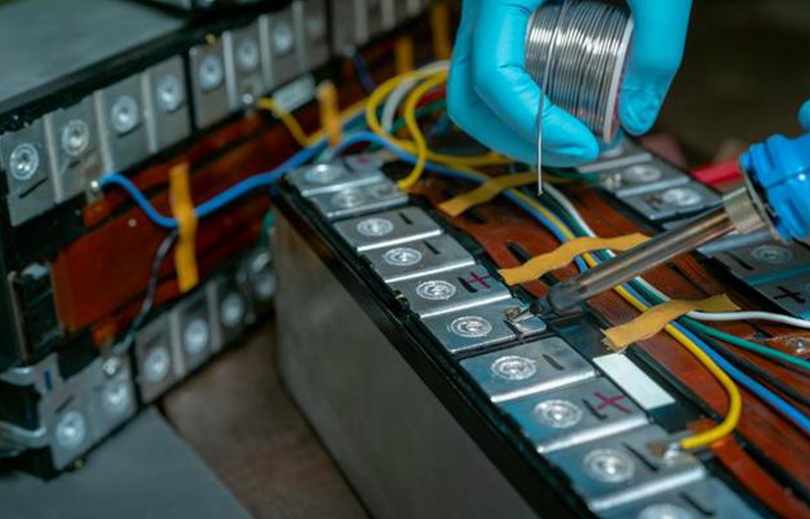Revolutionizing Transportation: The Power of Lithium Batteries in Low-Speed Electric Vehicles
In recent years, there has been a significant shift towards sustainable and environmentally friendly modes of transportation. Electric vehicles (EVs) have emerged as a promising solution to combat the rising concerns of climate change and pollution. While high-speed EVs, such as cars and buses, have gained considerable attention, low-speed electric vehicles (LS-EVs) powered by lithium batteries have quietly revolutionized short-distance transportation.
LS-EVs are designed for urban environments and are commonly used for short commutes, local delivery services, and transportation within campuses or resorts. These vehicles are compact, lightweight, and have a maximum speed of around 25 miles per hour, making them ideal for navigating crowded city streets and limited spaces. What sets LS-EVs apart from their high-speed counterparts is their reliance on lithium batteries.
Lithium batteries have proven to be a game-changer in the world of electric transportation. Their high energy density and long cycle life make them an ideal power source for LS-EVs. Compared to traditional lead-acid batteries, lithium batteries provide more energy storage capacity in a smaller and lighter package. This allows LS-EVs to have longer driving ranges and faster charging times, enhancing their practicality and convenience.
One of the key advantages of LS-EVs powered by lithium batteries is their reduced environmental impact. The use of lithium batteries eliminates tailpipe emissions, reducing air pollution and improving air quality in urban areas. Additionally, lithium batteries are rechargeable, making LS-EVs more sustainable compared to combustion engine vehicles that rely on finite fossil fuels. As the electricity grid becomes greener with the integration of renewable energy sources, the environmental benefits of LS-EVs powered by lithium batteries will continue to grow.
Another significant advantage of lithium batteries in LS-EVs is their superior performance and efficiency. Lithium batteries have a higher energy conversion efficiency compared to other battery chemistries, resulting in better overall vehicle performance. LS-EVs powered by lithium batteries have faster acceleration, smoother rides, and reduced maintenance requirements. These vehicles can also be equipped with regenerative braking systems that capture and store energy during deceleration, further enhancing their energy efficiency.
The versatility of LS-EVs powered by lithium batteries is another crucial aspect of their success. These vehicles can be customized to suit a wide range of applications, such as cargo carriers, passenger shuttles, and even recreational vehicles. Their compact size and maneuverability allow them to navigate narrow streets and tight corners with ease, making them an excellent choice for last-mile delivery services and shared mobility solutions. With the growing demand for sustainable transportation options, LS-EVs powered by lithium batteries are poised to play a significant role in shaping the future of urban mobility.
While LS-EVs powered by lithium batteries offer numerous advantages, there are still some challenges that need to be addressed. The upfront cost of lithium batteries remains relatively high compared to traditional lead-acid batteries, making LS-EVs more expensive. However, as technology advances and economies of scale come into play, the cost of lithium batteries is expected to decrease, making LS-EVs more affordable and accessible to a wider audience.

Furthermore, the availability and accessibility of charging infrastructure is another hurdle that needs to be overcome. LS-EVs rely on a network of charging stations to recharge their batteries, and the expansion of this infrastructure is crucial to support the widespread adoption of electric transportation. Governments, private companies, and communities need to collaborate to develop comprehensive charging networks that are convenient and reliable.
In conclusion, the power of lithium batteries in low-speed electric vehicles cannot be underestimated. These vehicles have revolutionized short-distance transportation in urban areas, offering environmental benefits, superior performance, and versatility. With further advancements in technology and the continued expansion of charging infrastructure, LS-EVs powered by lithium batteries will continue to drive the transition towards a more sustainable and efficient transportation system. It is up to us to embrace and support this revolution to create a cleaner and greener future for generations to come.
-
 When it comes to outdoor adventures, having a reliable power source is crucial. Whether you are camping, boating, or RVing, having a lithium camper battery can make all the difference in ensuring a comfortable and convenient experience. With their impressive power capabilities and long-lasting performance, these batteries are becoming increasingly popular among outdoor enthusiasts. One of the main reasons...Læs mere
When it comes to outdoor adventures, having a reliable power source is crucial. Whether you are camping, boating, or RVing, having a lithium camper battery can make all the difference in ensuring a comfortable and convenient experience. With their impressive power capabilities and long-lasting performance, these batteries are becoming increasingly popular among outdoor enthusiasts. One of the main reasons...Læs mere -
 LiFePO4 batteries are becoming increasingly popular in various applications, including electric vehicles, renewable energy storage, and backup power systems. These batteries are known for their high energy density, long cycle life, and excellent safety performance. In this article, we will discuss the durability and reliability of LiFePO4 batteries and explain why they have a longer lifespan compared to other battery...Læs mere
LiFePO4 batteries are becoming increasingly popular in various applications, including electric vehicles, renewable energy storage, and backup power systems. These batteries are known for their high energy density, long cycle life, and excellent safety performance. In this article, we will discuss the durability and reliability of LiFePO4 batteries and explain why they have a longer lifespan compared to other battery...Læs mere -
 Lithium batteries have revolutionized the way we power our devices, from smartphones to electric vehicles. Among the various types of lithium batteries available, the lithium iron phosphate (LiFePO4) battery stands out for its enhanced longevity and superior performance. In this article, we will delve into the capabilities and advantages of a 100Ah LiFePO4 lithium battery. LiFePO4 batteries are known...Læs mere
Lithium batteries have revolutionized the way we power our devices, from smartphones to electric vehicles. Among the various types of lithium batteries available, the lithium iron phosphate (LiFePO4) battery stands out for its enhanced longevity and superior performance. In this article, we will delve into the capabilities and advantages of a 100Ah LiFePO4 lithium battery. LiFePO4 batteries are known...Læs mere -
 In recent years, the concept of smart grids has gained significant attention in the field of energy management. A smart grid is an advanced electrical grid that utilizes digital technology to efficiently manage the generation, distribution, and consumption of electricity. One crucial component of smart grids is the use of lithium batteries, which offer several advantages over traditional lead-acid batteries....Læs mere
In recent years, the concept of smart grids has gained significant attention in the field of energy management. A smart grid is an advanced electrical grid that utilizes digital technology to efficiently manage the generation, distribution, and consumption of electricity. One crucial component of smart grids is the use of lithium batteries, which offer several advantages over traditional lead-acid batteries....Læs mere -
 Lithium iron phosphate (LiFePO4) motorcycle battery is one of the most reliable and efficient power sources available in the market today. This type of battery has several advantages over traditional lead-acid batteries, making it a popular choice among motorcycle owners. LiFePO4 motorcycle batteries have gained popularity due to their high energy density, long cycle life, and low self-discharge rate. In...Læs mere
Lithium iron phosphate (LiFePO4) motorcycle battery is one of the most reliable and efficient power sources available in the market today. This type of battery has several advantages over traditional lead-acid batteries, making it a popular choice among motorcycle owners. LiFePO4 motorcycle batteries have gained popularity due to their high energy density, long cycle life, and low self-discharge rate. In...Læs mere -
 When it comes to enjoying a day out on the water, having a reliable boat is crucial. One key component that ensures a smooth start-up is the cranking battery. This essential part provides the necessary power to start the boat's engine and get you sailing in no time. In this article, we will explore the importance of a cranking battery...Læs mere
When it comes to enjoying a day out on the water, having a reliable boat is crucial. One key component that ensures a smooth start-up is the cranking battery. This essential part provides the necessary power to start the boat's engine and get you sailing in no time. In this article, we will explore the importance of a cranking battery...Læs mere -
 Introduction As the world's population continues to grow, the demand for food production is increasing rapidly. To meet this demand, the agriculture industry is undergoing a significant transformation with the adoption of advanced technologies. One of the key technological advancements in agriculture is the use of high-power lithium batteries in agricultural tools. These batteries not only provide increased power...Læs mere
Introduction As the world's population continues to grow, the demand for food production is increasing rapidly. To meet this demand, the agriculture industry is undergoing a significant transformation with the adoption of advanced technologies. One of the key technological advancements in agriculture is the use of high-power lithium batteries in agricultural tools. These batteries not only provide increased power...Læs mere

